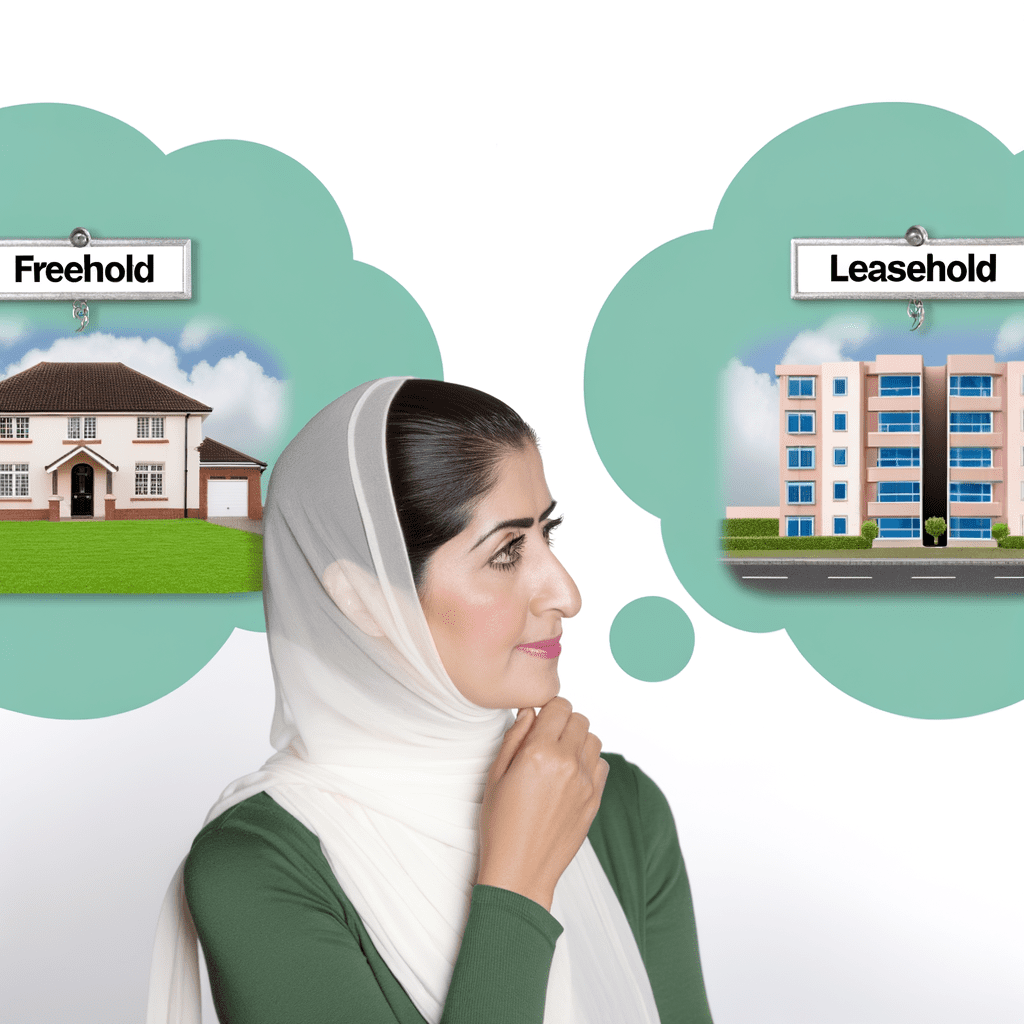Key Differences Between Freehold and Leasehold Properties in the UK: What Every Homebuyer Must Know
The Complexities of Ownership Types: Freehold vs. Leasehold
Before delving into the real estate market and becoming a homeowner or investor in the UK, it’s imperative to understand the key differences between freehold and leasehold properties. In the UK, these two types of property ownership play a vital role in the home buying process as they dictate the rights and responsibilities of the owner.
A freehold property means you own the building and the land it’s situated upon. Conversely, with a leasehold property, you are merely leasing it for a certain number of years from the freeholder or ‘landlord.’ These two ownership types garner different costs, duties, and rules – factors that every homebuyer must be aware of.
The Specifics of Freehold Ownership
Freehold is the more conventional form of ownership. When you buy a freehold property, you own the house and the plot of land on which it stands outright, in perpetuity. It becomes yours for an indefinite period and will remain so unless you decide to sell it. In contrast to leasehold properties, there can’t be any annual ground rent, and no one can take possession of the house apart from legal mortgage providers.
The primary advantage of having a freehold property is the absence of a superior landlord, which means you don’t have to worry about escalating ground rents, unfair service charges, or potential strains of lease extensions. Furthermore, you have full control over the property and can make alterations or developments without needing anyone’s approval.
A Closer Look at Leasehold Properties
On the other hand, when you own a leasehold property, you own the home but not the land it’s built on. Essentially, you only have a lease from the freeholder to use the home for a number of years. The leases are typically long-term and can run up to 999 years, but ‘short’ leases are also present around, lasting for 40 years or less.
With a leasehold property, you need to obtain permission from the freeholder for any significant modifications to the homes, and potentially pay them a fee. In addition, there are other financial considerations such as service charges, ground rent, and potentially a share of the building’s insurance. The cost and terms of these charges can fluctuate, challenging leasehold property owners with unpredictable expenses.
Making the Right Choice: Freehold vs Leasehold
Understanding the critical differences between these two types of ownership is essential when deciding which property to buy. Freehold properties offer more control, less unpredictability, and generally fewer costs in the long run. For those who value their independence, freehold properties may be the best solution.
However, leasehold properties can be a suitable alternative, especially for homebuyers interested in apartments, as most apartments in the UK are sold on a leasehold basis. It can also be a more affordable initial purchase, albeit the occasional financial burdens because of rising charges.
Putting it into Perspective: The Legal Aspect
It’s also vital to understand the legal component of property ownership. Freehold is generally less fraught with legal complexities as the ownership rights are straightforward. For leasehold properties, the law can be more complicated as the leaseholder’s rights diminish as the lease length shortens, particularly once it falls below 80 years. Therefore, when considering a leasehold property, it’s prudent to engage a solicitor who can thoroughly check the terms of the lease.
The Expert’s Advice
Navigating the diverse and complicated UK property landscape can be intimidating for first-time buyers or even seasoned investors. It’s recommended to seek expert advice – property surveyors, lawyers, estate agents – before making an acquisition. This can help you grasp the nature of the property, legal implications, potential charges, and unique restrictions that might be applicable.
At Flettons, we’re committed to safeguarding your investment. When considering a property purchase, trust our seasoned expertise to reveal any hidden threats. For a thorough building survey, get your instant quote through our quote calculator or reach out directly at 0203 691 0451. Your home’s safety is our top priority.

